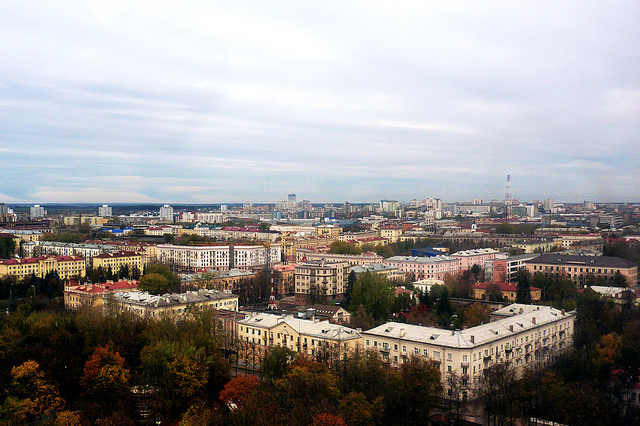Women’s Empowerment in Belarus is Slow but Encouraging
 Despite the widespread desire for greater women’s empowerment around the world, sometimes actually taking concrete steps to provide greater rights to women can seem like an impossible task. Women’s empowerment in Belarus is no exception. The country struggles in particular with a deeply-entrenched patriarchal culture that serves to prevent substantial change in the area of gender relations.
Despite the widespread desire for greater women’s empowerment around the world, sometimes actually taking concrete steps to provide greater rights to women can seem like an impossible task. Women’s empowerment in Belarus is no exception. The country struggles in particular with a deeply-entrenched patriarchal culture that serves to prevent substantial change in the area of gender relations.
That being said, all is not lost. There are some relatively straightforward fixes that are currently being applied, and the international community is making a renewed effort to empower civil society groups fighting for women’s empowerment in Belarus.
The two main issues standing in the way of greater women’s empowerment in Belarus are the country’s high rates of domestic violence and the blatant legal restrictions imposed on women’s employment. Violence against women in Belarus is a significant problem, and one that was incorporated into the most recent set of main goals of the U.N. Development Program’s (UNDP) mission to Belarus. The UNDP makes a point of centering violence against women in its work in Belarus and organizes regular awareness campaigns to promote understanding of the severity of this issue.
The second issue essentially amounts to state-mandated employment discrimination against women. In Belarus, there is a list of 181 occupations that are, by law, reserved exclusively for men. Prior to 2014, this list was twice its current length. It was created, and is defended, on the basis of what can be described as “benevolent sexism.”
Benevolent sexism is the belief that women are fragile or otherwise physically or emotionally incapable of performing certain tasks, and so should be prohibited from doing so for their protection. Also at work is the deeply-entrenched cultural belief that women are needed for the tasks of homemaking and child-rearing in order to maintain a high native population and cultivate a strong nation.
Because of these cultural norms, getting the laws changed is no easy task. There are no legal or institutional barriers to women’s political participation in Belarus, which is encouraging, but there are significant cultural obstacles standing in the way. That being said, the UNDP notes that women in Belarus are comparatively highly educated, which bodes well for future successes.
In October 2017, Deputy Resident Representative for the UNDP in Belarus, Zachary Taylor, noted that Belarusian women are poised to play a leadership role in meeting the country’s sustainable development goals. The U.N. is currently focusing on reducing rates of domestic violence in Belarus and on providing capital to female entrepreneurs wishing to start their own businesses. These two actions alone could potentially make a huge difference for women’s empowerment in Belarus in the long run.
Efforts are also being made to support civil society organizations and improve the capacity of women’s human rights organizations to mobilize and advocate for change. In 2014, the Karat Coalition spent time collaborating with and advising the Belarusian Public Association “Women’s Independent Democratic Movement” with financial and technical support provided by the Embassy of the Kingdom of the Netherlands in Poland, drafting legislation to reduce restrictions on women’s employment. This collaboration also served as a valuable networking opportunity for Belarusian women’s rights advocates to learn from the experiences of international allies and gain valuable support.
Although women’s empowerment in Belarus is still battling against antiquated societal norms and discriminatory legislation, it is clear that the nation is making great strides forward in achieving gender equality. With continued support from the U.N. and other organizations, women in Belarus will achieve the same rights as men in the near future.
– Michaela Downey
Photo: Flickr
